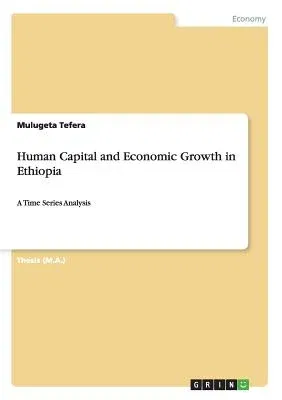Thesis (M.A.) from the year 2014 in the subject Business economics -
Operations Research, grade: Masters of Science, Wollega University
(School of Economics), course: Development Economics, language: English,
abstract: The topic of the research is Human Capital and Economic Growth
of Ethiopia. The research answered questions such as "does human capital
contribute to economic growth of Ethiopia?" with major objective to
analyze the short run and long run effect of human capital on economic
growth of Ethiopia over 1971 to 2013 using both ordinary least square
(OLS) econometric and descriptive methods of data analysis. The data
used for the research is secondary time series data collected by the
National Bank of Ethiopia over the years 1971 to 2013. Nominal GDP is
used as dependent and proxy variable for Economic growth while
independent variables are physical capital, active labor force, terms of
trade for measure of openness, government expenditure and human capital
in the form of expenditure on health and education. Accordingly, the
empirical finding shows that human capital in the form of education and
health investment has consistent and significant long run effect on
economic growth of Ethiopia at 5% level of significance. Keeping the
other variables constant, 1% change (increase/decrease) in expenditure
in human capital will change (increase/decrease) nominal output by
0.23%. In contrary short run human capital has consistent but
insignificant effect on economic growth of Ethiopia. Because, either it
takes time for education investment to pay off or the government's
budget for short run education and health sector development is not
sufficient. The adjustment of the short run dynamics or disequilibrium
to the long run equilibrium is weak, which is 36%. Thus, education and
sectors ought to allocate resources for both quality of and access so
that the benefit from human capital development outshines in
contribution to economic growth. The sectoral contribution


